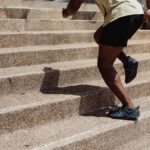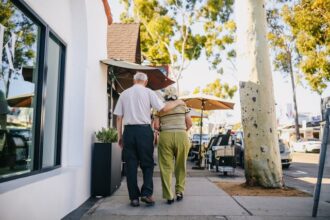A collaborative team from Amsterdam UMC and Maastricht UMC+ has made a groundbreaking discovery: a specific type of fat accumulates as tissues age, but exercise can reverse this process. This research, a testament to the power of collective effort, involved analysing tissue samples from mice and humans before and after exercise. The team’s findings have been published in today’s edition of Nature Aging.
Professor Riekelt Houtkooper from Amsterdam UMC’s Genetic Metabolic Diseases laboratory expressed his excitement about the potential implications of these findings. “The notion of reversing aging has traditionally been relegated to the realm of science fiction. However, these discoveries provide us with significant insights into the aging process,” he stated. Houtkooper’s colleague, Georges Janssens, who is the first author of the study and an assistant professor at Amsterdam UMC, added, “Often, we accept aging as an inevitable part of life, but this research shows that this doesn’t necessarily have to be the case. With a deeper understanding of how aging works, we can explore new methods of intervention that could potentially revolutionise aging research.”
Recent laboratory studies have indicated that it might be possible to combat age-related diseases by targeting the fundamental mechanisms that drive ageing. While scientific understanding of how metabolism alters with age has progressed, many aspects still need to be better understood. “Our goal was to broaden the existing knowledge base. Lipids, a crucial component of our diet and essential for cell function, form the cellular membranes that maintain the separation between the interior and exterior of cells,” explained Houtkooper.
To expand on this knowledge, the researchers examined how fat composition changes in various tissues of mice, such as muscles, kidneys, liver, and heart. They observed that in all these tissues from older mice, levels of a particular lipid known as bis(monoacylglycero)phosphates (BMPs) were increased, indicating that these lipids accumulate with age. The team then explored whether a similar pattern could be observed in humans. Although they could not sample as many tissue types, the accumulation of BMPs was also noticeable in muscle biopsies from older individuals. Further studies involving additional muscle biopsies from participants before and after engaging in daily hour-long exercise sessions showed decreased BMP levels among the active subjects.
“These findings mark a significant advancement in our understanding of aging,” Houtkooper remarked. “However, they do not represent the definitive answer. We are planning further studies to explore how BMPs contribute to the aging process, the effects of BMP accumulation, and whether factors other than exercise can also influence BMP levels.”
This research challenges the inevitability of ageing and opens the door to potential new strategies for extending health span and combating age-related diseases through molecular and lifestyle interventions.
More information: Georges E. Janssens et al, A conserved complex lipid signature marks human muscle aging and responds to short-term exercise, Nature Aging. DOI: 10.1038/s43587-024-00595-2
Journal information: Nature Aging Provided by Amsterdam University Medical Center








